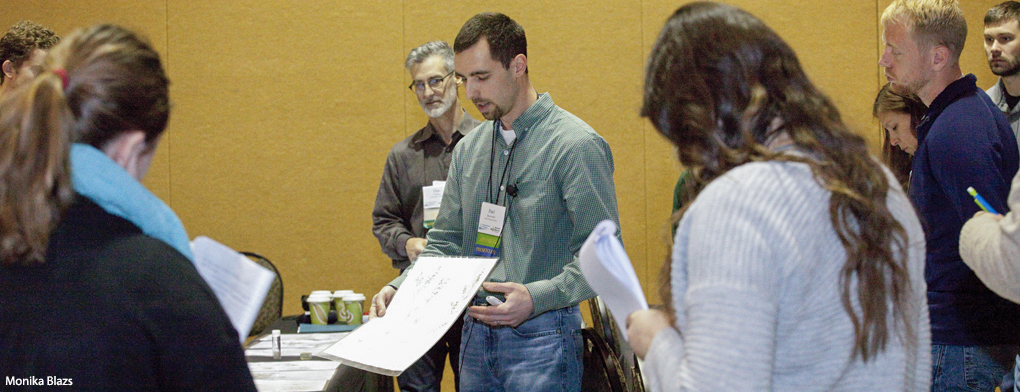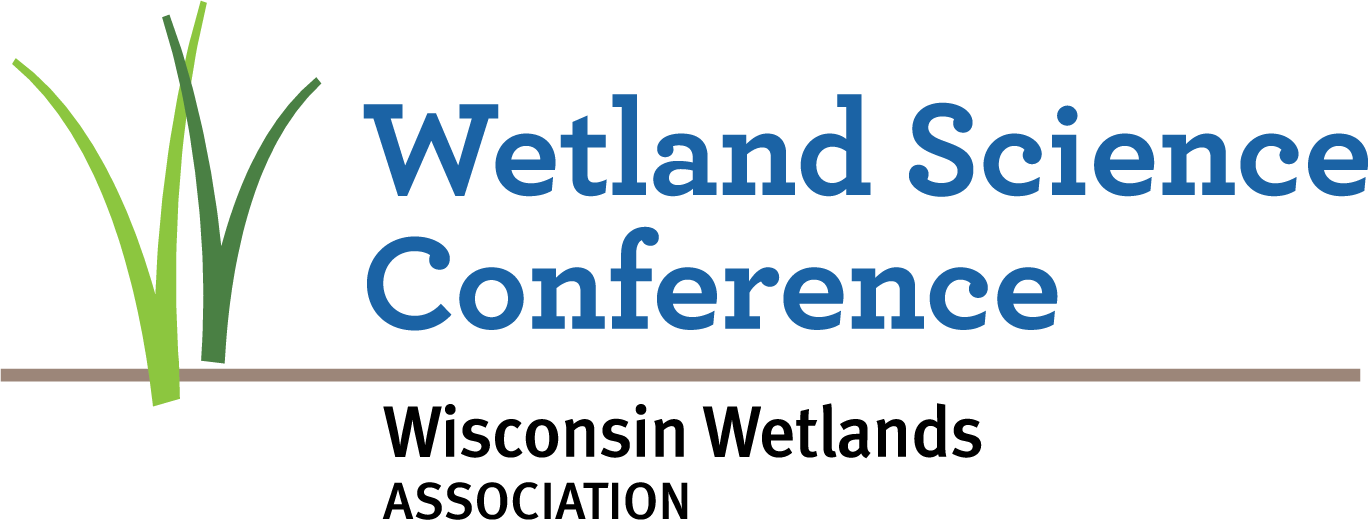
Workshops
Workshops are your chance to learn and apply new skills and methodologies.
Pre-registration for workshops is required and includes a nominal fee to cover workshop expenses. Sign up for workshops when you register for the conference. Please note that these sessions may be held concurrent with other conference content (working groups, roundtable conversations, field trips, and concurrent sessions), so check the conference schedule before you sign up. Space in each workshop is limited, and sign up is first-come-first-serve, so register early to make sure you get into your desired workshop. Note that workshop fees are non-refundable.
Tuesday, February 24, 2026
Introduction to common Wisconsin sedges
Time: 1:30 – 4:30 pm
Registration fee: $35
Instructors: Patricia Trochlell (The Prairie Enthusiasts) and Steve Eggers (US Army Corps of Engineers – retired)
This workshop will provide an introduction to Wisconsin sedges, introducing participants to plants in the sedge family and teaching them how to tell them apart from sedge look-alikes. We will briefly cover common genera in the sedge family, and then we will concentrate on plants in the genus Carex, particularly species most frequently encountered in and adjacent to Wisconsin wetlands. Participants can expect to learn how to identify common species of sedges as well as techniques and tips for keying plants. We will also cover habitat and ecology as clues to identification and provide dried sedge samples for observation and keying practice. We will also have recommended books and resources available for review.
New wetland rapid functional value tool (RAM) training
Time: 1:30 – 4:30 pm
Registration fee: $25
Instructors: Sally Jarosz (Wisconsin DNR); Ken Powell (MN Board of Water & Soil Resources); Allison Willman (Wisconsin DNR); and Tom Pearce (Wisconsin DNR)
In 2026, the Wisconsin Department of Natural Resources will start to implement the use of a new wetland functional value assessment tool, the WI/MN Rapid Assessment Methodology (RAM). Wisconsin and Minnesota agency staff will provide in-depth training on the use of the new tool and how it will be implemented into future permitting practices. The new RAM is an excel-based tool based on standardized GIS mapping tools and a clear set of field-based questions. Trainers will walk through the user guide and the suite of desktop-based questions in the Excel tool and will provide an overview of field-based work.
Glacial geology 101 for wetland professionals
Time: 1:30 – 4:30 pm
Registration fee: $10
Instructor: Nelson Ham (Professor of Geology and Environmental Science, St. Norbert College)
Wisconsin’s glacial geology plays a significant role in wetland investigations throughout much of our state. Glacial deposits serve as parent material for most soils, and glacial landforms play an important role in determining wetland hydrology and geomorphology. Detailed county-scale mapping of Wisconsin’s glacial geology is nearly complete, and a new statewide map of glacial geology is now available. This workshop is designed to introduce wetland professionals to the glacial geology of Wisconsin. We will focus on understanding the major glacial sediment types and landforms produced during glacial advance and retreat. Participants will practice interpreting landforms and landscapes, and they will also become comfortable utilizing glacial geology reports and maps as tools for wetland investigations. This workshop assumes little or no formal background in glacial geology. Everyone is invited to attend!
Ho Chunk Black Ash basket making
Time: 1:30 – 3:30 pm
Registration fee: $95*
Instructors: Kimberly Crowley (Thunder Clan of the Ho Chunk Nation)
Learn how to weave and make a Ho Chunk Black Ash basket with Kimberly Crowley, a Basketmaker for over 45 years and member of the Thunder Clan of the Ho Chunk Nation. Kimberly has been featured at several museums as well as permanent pieces of art at several historical societies in the Baraboo/Wisconsin Dells area.
All participants will have access to Black Ash to complete one small size basket, cut, scraped, and ready for assembling. All participants will leave with one small finished basket.
*Please note that this workshop fee applies to all registrants, and is not included in any discount or complimentary registrations, as it includes materials and instructor fees. Workshop fees are non-refundable.
Wednesday, February 25, 2026
Identification of Wisconsin's native and exotic aquatic plants
Time: 11:00 am – 12:20 pm
Registration fee: $55 (includes book*)
Instructors: Paul Skawinski (UW-Stevens Point Extension Lakes) and Madeline Hetland (Program Assistant) (UW-Stevens Point Extension Lakes)
Wisconsin is blessed with more than 170 species of submergent and floating-leaved aquatic plants. This workshop will introduce participants to our underwater forests using laminated plant specimens and hi-resolution photography. Paul and Madeline will use a combination of high-resolution photographs and laminated teaching specimens to teach participants how to identify common aquatic plants found in Wisconsin, with an emphasis on species found in or adjacent to wetlands.
*This workshop includes a copy of “Aquatic Plants of the Upper Midwest” for each participant.
Thursday, February 26, 2026
World wide web of wetlands: Harnessing desktop tools for assessing wetland quality, siting, vulnerability, and opportunities
Time: 10:40 am – 2:50 pm (w/ lunch break)
Registration fee: $10
Instructors: Peter Levi (The Nature Conservancy); Aaron Marti, Lauren Haydon, and Chris Smith (Wisconsin DNR); Steve Ventura (UW-Madison-emeritus)
Our workshop will present several interactive online tools and resources that put wetland health and vulnerability into a landscape context at multiple scales (e.g. specific sites to watersheds, single property or statewide). The tools compare and assess wetlands in the context of (1) watershed and freshwater features, (2) the continuum of watershed and ecosystem health, function, and vulnerability, and (3) opportunities for restoration and protection prioritization. The objective is to provide the knowledge and expertise to harness these powerful (and free) desktop resources to enable participants to seamlessly incorporate tool outputs into their daily workflow.
We will present Wisconsin Department of Natural Resources’ Watershed Restoration and Protection Viewer and The Nature Conservancy’s Wetlands by Design and Freshwater Resilient and Connected Network tools; and we will explore local, site-specific resources. Our presentations will be followed by an opportunity for participants to explore specific projects or areas of interest with workshop instructors to build their confidence and ability in the use and application of these tools. Finally, we will facilitate a discussion on tool applications for all participants and instructors to learn from each other. The workshop will be especially useful for wetland enthusiasts who work as mitigation and restoration practitioners, municipal or county planning staff, regulators, and land and resource managers—from local to state to federal agency staff.
